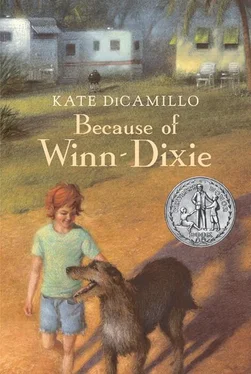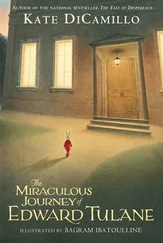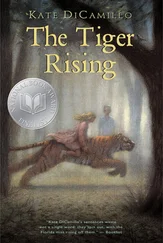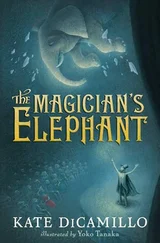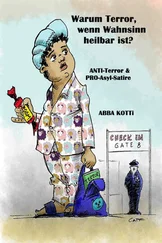“No ma’am!” Amanda and me said at exactly the same time. We looked real quick at each other and then back at Miss Franny.
“You cannot imagine. Littmus was hungry all the time. And he was covered with all manner of vermin; fleas and lice. And in the winter, he was so cold he thought for sure he would freeze to death. And in the summer, why there’s nothing worse than war in the summertime. It stinks so. And the only thing that made Littmus forget that he was hungry and itchy and hot or cold was that he was getting shot at. And he got shot at quite a bit. And he was nothing more than a child.”
“Did he get killed?” I asked Miss Franny.
“Good grief,” said Amanda. She rolled her eyes.
“Now, Opal,” Miss Franny said, “I wouldn’t be standing in this room telling this story if he was killed. I wouldn’t exist. No ma’am. He had to live. But he was a changed man. Yes ma’am. A changed man. He walked back home when the war was over. He walked from Virginia all the way back to Georgia. He didn’t have a horse. Nobody had a horse except for the Yankees. He walked. And when he got home, there was no home there.”
“Where was it?” I asked her. I didn’t care if Amanda thought I was stupid. I wanted to know.
“Why,” Miss Franny shouted so loud that Winn-Dixie and Amanda Wilkinson and me all jumped, “the Yankees burned it! Yes ma’am. Burned it to the ground.”
“What about his sisters?” Amanda asked. She moved around the desk and came and sat on the floor. She looked up at Miss Franny. “What happened to them?”
“Dead. Dead of typhoid fever.”
“Oh no,” Amanda said in a real soft voice.
“And his mama?” I whispered.
“Dead, too.”
“And his father?” Amanda asked. “What happened to him?”
“He died on the battlefield.”
“Littmus was an orphan?” I asked.
“Yes ma’am,” said Miss Franny Block. “Littmus was an orphan.”
“This is a sad story,” I told Miss Franny.
“It sure is,” said Amanda. I was amazed that she was agreeing with me about something.
“I am not done yet,” Miss Franny said.
Winn-Dixie started to snore, and I nudged him with my foot to try to make him quit. I wanted to hear the rest of the story. It was important to me to hear how Littmus survived after losing everything he loved.
“Well, Littmus came home from the war,” said Miss Franny as she went on with her story, “and found himself alone. And he sat down on what used to be the front step of his house, and he cried and cried. He cried just like a baby. He missed his mama and he missed his daddy and he missed his sisters and he missed the boy he used to be. When he finally finished crying, he had the strangest sensation. He felt like he wanted something sweet. He wanted a piece of candy. He hadn’t had a piece of candy in years. And it was right then that he made a decision. Yes ma’am. Littmus W. Block figured the world was a sorry affair and that it had enough ugly things in it and what he was going to do was concentrate on putting something sweet in it. He got up and started walking. He walked all the way to Florida. And the whole time he was walking, he was planning.”
“Planning what?” I asked.
“Why, planning the candy factory.”
“Did he build it?” I asked.
“Of course he did. It’s still standing out on Fairville Road.”
“That old building?” said Amanda. “That big spooky one?”
“It is not spooky,” said Miss Franny. “It was the birthplace of the family fortune. It was there that my great-grandfather manufactured the Littmus Lozenge, a candy that was famous the world over.”
“I’ve never heard of it,” said Amanda.
“Me neither,” I said.
“Well,” said Miss Franny, “they aren’t made anymore. The world, it seems, lost its appetite for Littmus Lozenges. But I still happen to have a few.” She opened the top drawer of her desk. It was full of candy. She opened the drawer below that. It was full of candy, too. Miss Franny Block’s whole desk was full of candy.
“Would you care for a Littmus Lozenge?” she asked Amanda and me.
“Yes, please,” said Amanda.
“Sure,” I said. “Can Winn-Dixie have one, too?”
“I have never known a dog that cared for hard candy,” said Miss Franny, “but he is welcome to try one.”
Miss Franny gave Amanda one Littmus Lozenge and me two. I unwrapped one and held it out to Winn-Dixie. He sat up and sniffed it and wagged his tail and took the candy from between my fingers real gentle. He tried to chew on it, and when that didn’t work, he just swallowed the whole thing in one big gulp. Then he wagged his tail at me and lay back down.
I ate my Littmus Lozenge slow. It tasted good. It tasted like root beer and strawberry and something else I didn’t have a name for, something that made me feel kind of sad. I looked over at Amanda. She was sucking on her candy and thinking hard.
“Do you like it?” Miss Franny asked me.
“Yes ma’am,” I told her.
“What about you, Amanda? Do you like the Littmus Lozenge?”
“Yes ma’am,” she said. “But it makes me think of things I feel sad about.”
I wondered what in the world Amanda Wilkinson had to feel sad about. She wasn’t new to town. She had a mama and a daddy. I had seen her with them in church.
“There’s a secret ingredient in there,” Miss Franny said.
“I know it,” I told her. “I can taste it. What is it?”
“Sorrow,” Miss Franny said. “Not everybody can taste it. Children, especially, seem to have a hard time knowing it’s there.”
“I taste it,” I said.
“Me, too,” said Amanda.
“Well, then,” Miss Franny said, “you’ve probably both had your share of sadness.”
“I had to move away from Watley and leave all my friends,” I said. “That is one sadness I have had. And Dunlap and Stevie Dewberry are always picking on me. That’s another sadness. And the biggest one, my biggest sadness, is that my mama left me when I was still small. And I can hardly remember her; I keep hoping I’ll get to meet her and tell her some stories.”
“It makes me miss Carson,” said Amanda. She sounded like she was going to cry. “I have to go.” And she got up and almost ran out of the Herman W. Block Memorial Library.
“Who’s Carson?” I asked Miss Franny.
She shook her head. “Sorrow,” she said. “It is a sorrow-filled world.”
“But how do you put that in a piece of candy?” I asked her. “How do you get that taste in there?”
“That’s the secret,” she said. “That’s why Littmus made a fortune. He manufactured a piece of candy that tasted sweet and sad at the same time.”
“Can I have a piece to take to my friend Gloria Dump? And another one to take to Otis down at Gertrude’s Pets? And one for the preacher? And one for Sweetie Pie, too?”
“You may have as many as you want,” said Miss Franny.
So I stuffed my pockets full of Littmus Lozenges and I thanked Miss Franny for her story and I checked out Gone with the Wind (which was a very big book) and I told Winn-Dixie to get up, and the two of us left and went over to Gloria Dump’s. I rode right past the Dewberrys’ house. Dunlap and Stevie were playing football in the front yard and I was just getting ready to stick my tongue out at them; but then I thought about what Miss Franny said, about war being hell, and I thought about what Gloria Dump said, about not judging them too hard. And so I just waved instead. They stood and stared at me; but when I was almost all the way past, I saw Dunlap put his hand up in the air and wave back.
“Hey,” he hollered. “Hey, Opal.”
I waved harder and I thought about Amanda Wilkinson and how it was neat that she liked a good story the same as I did. And I wondered again . . . who was Carson?
Читать дальше
